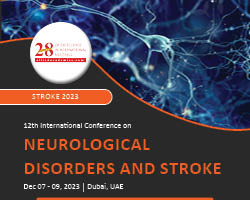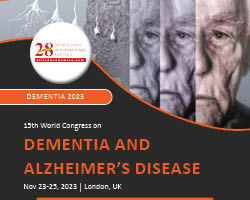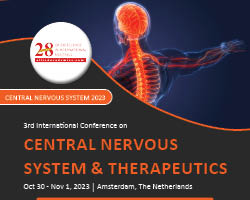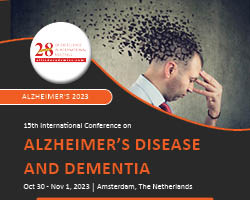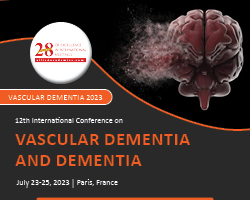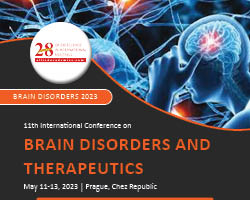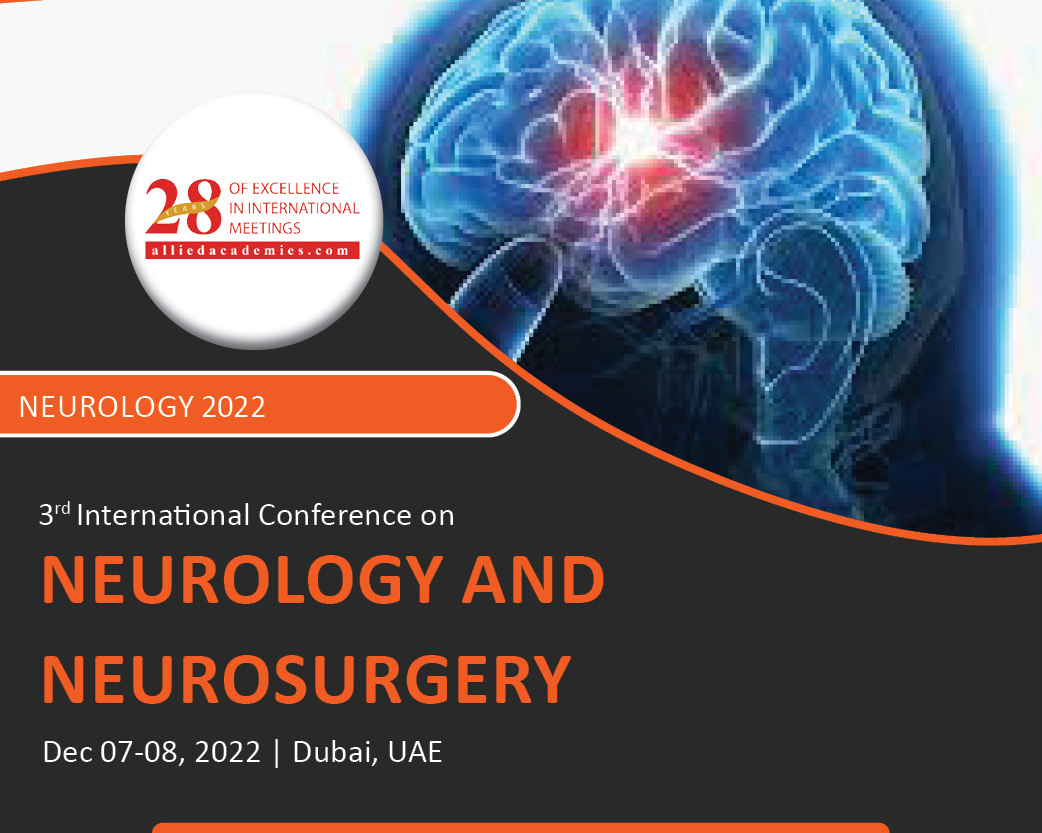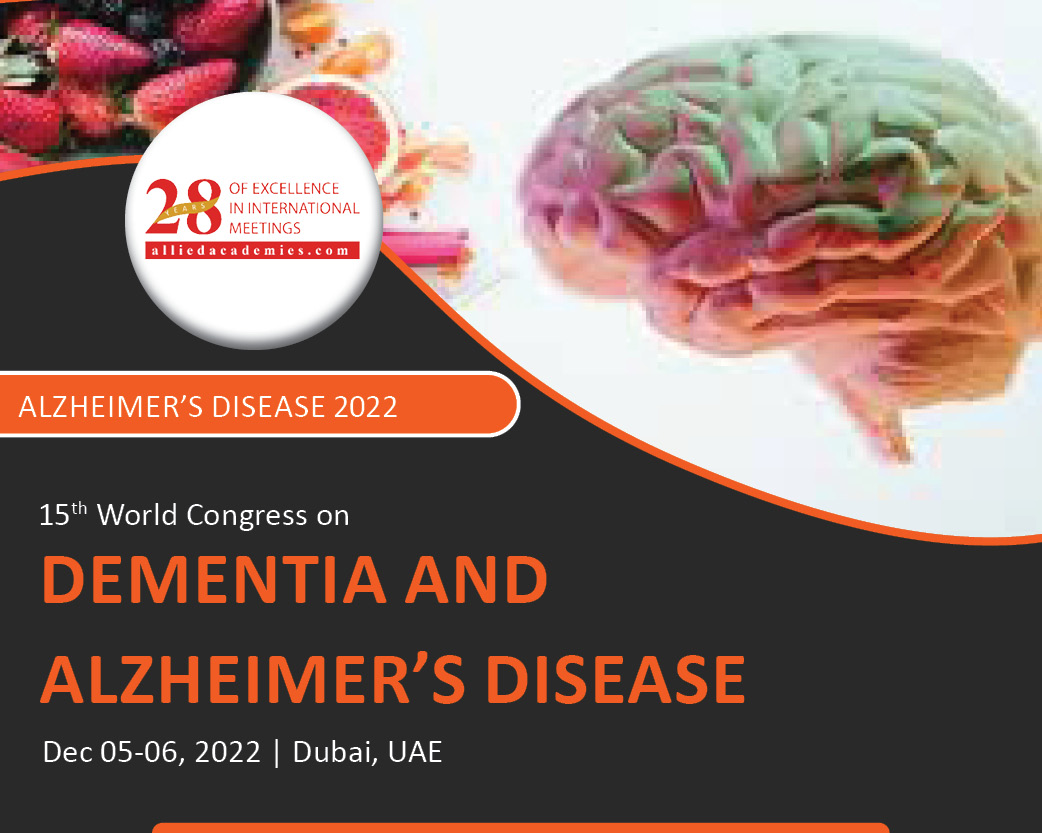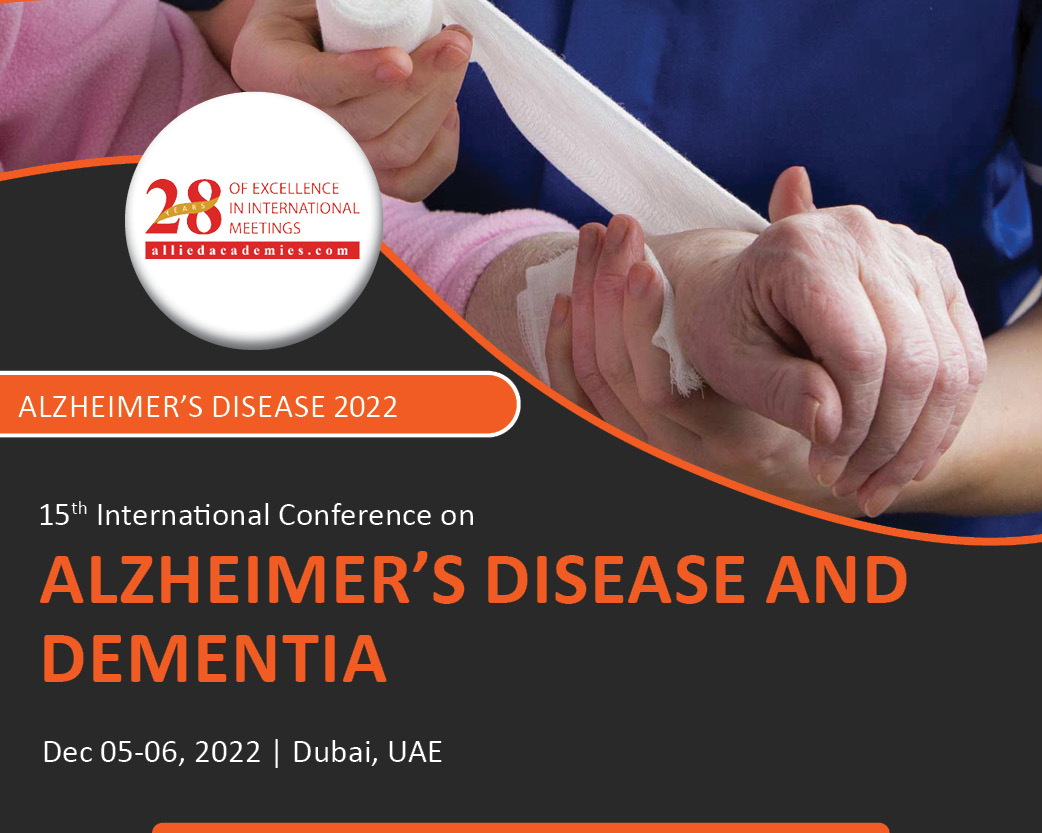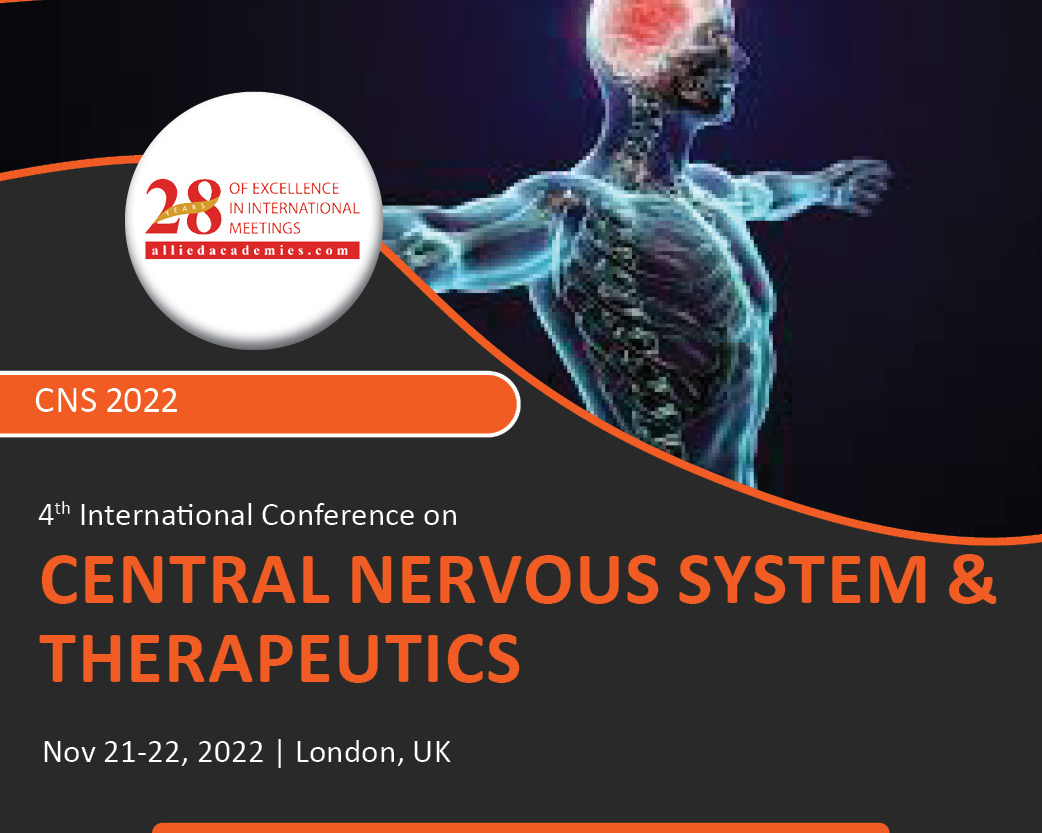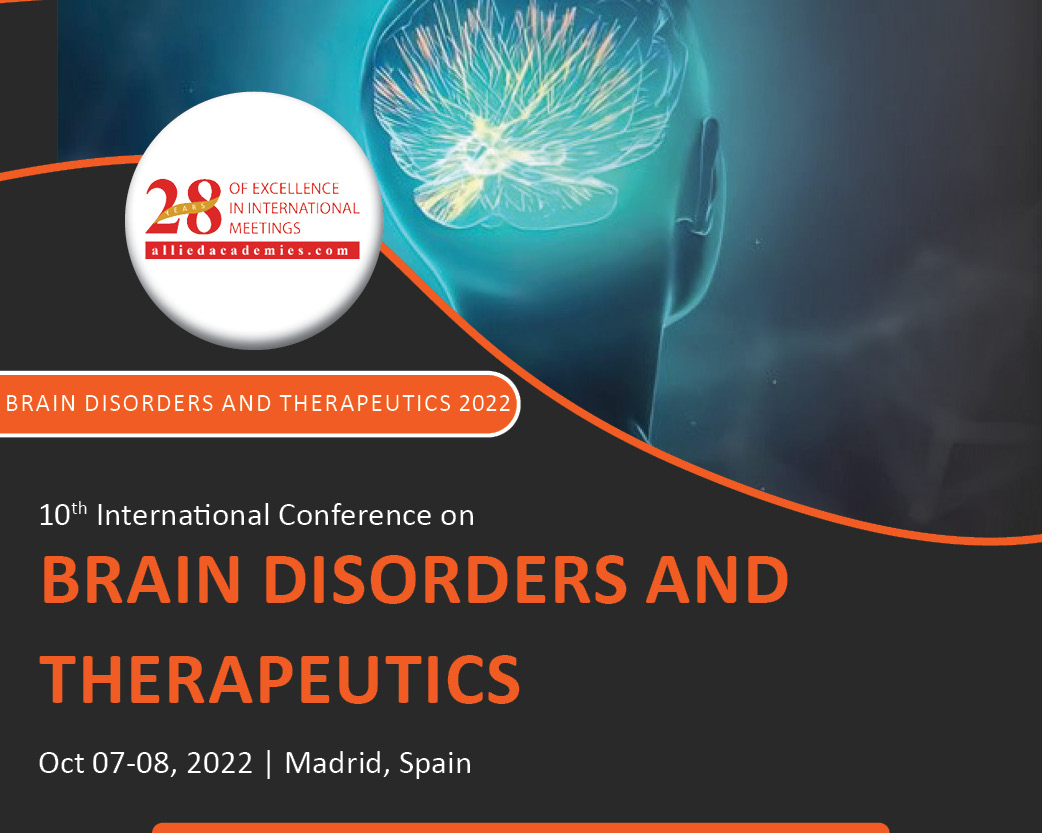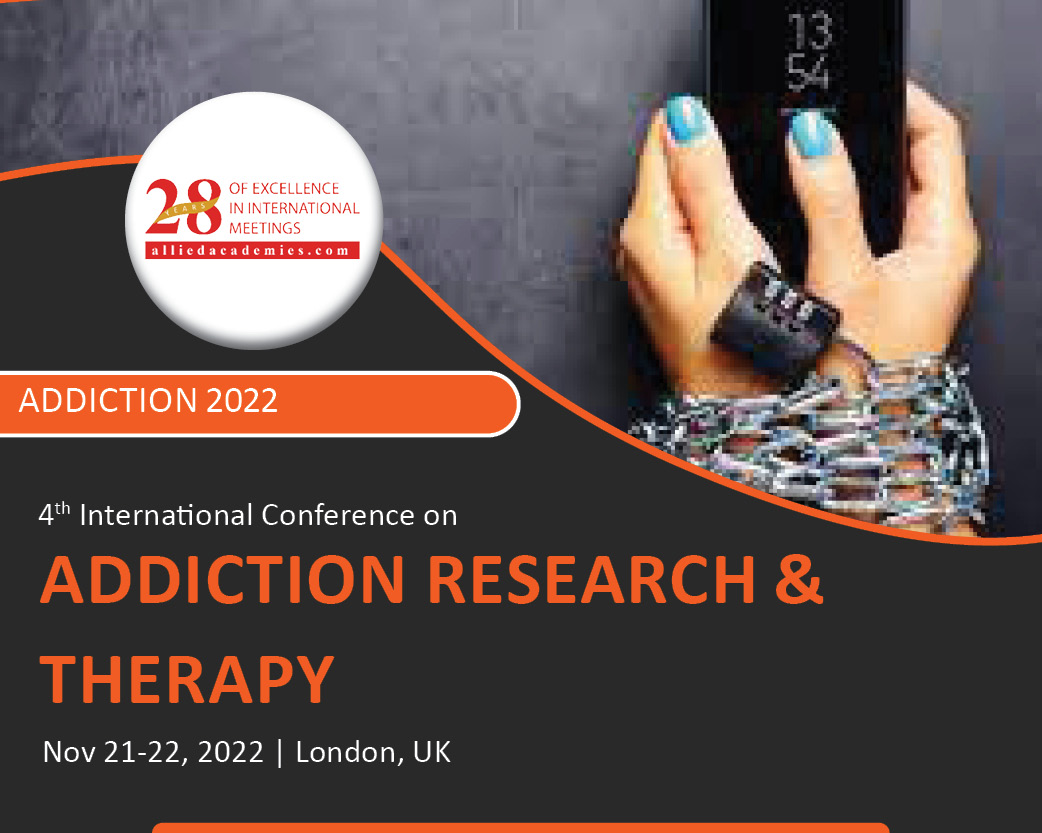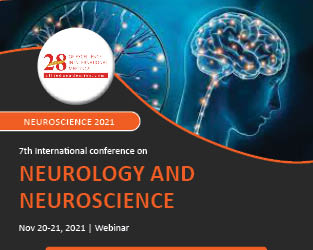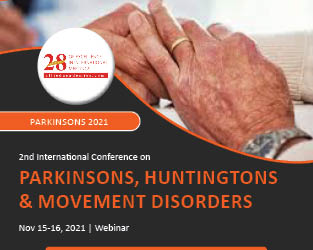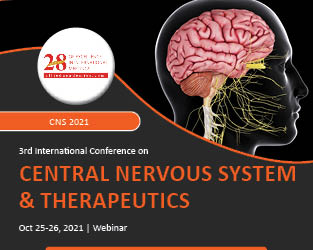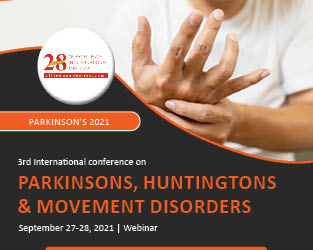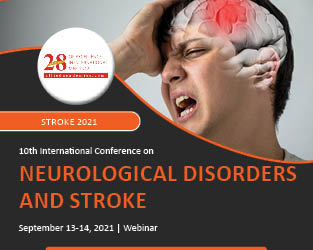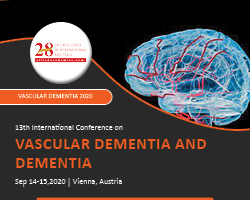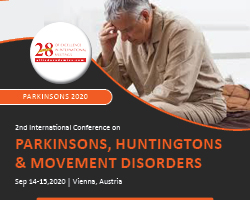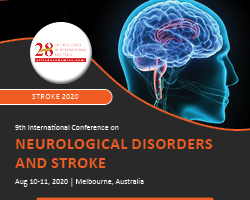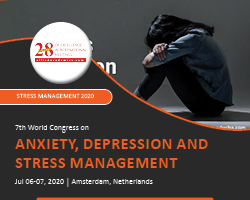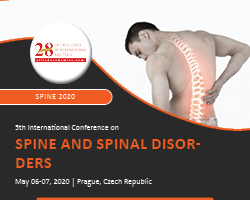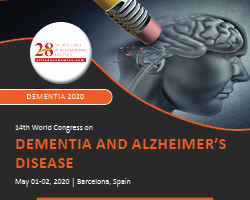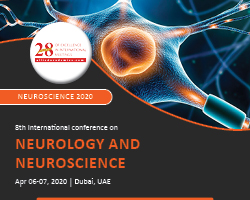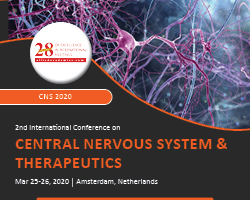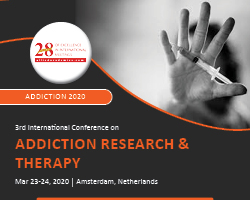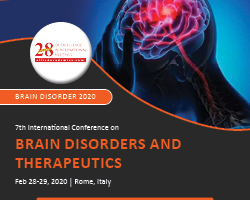2024 Conferences
2023 Conferences
2022 Conferences
2021 Conferences
2020 Conferences
Allied Academies organizes 1000+ NeuroscienceConferences striving to unveil the advances in the field of Neurology and NeuroscienceResearches from the corners of the globe.
The nervous system isnot only responsible for the thoughts, emotions and behavior strolling in ahuman mind, but also controls all the significant body functions as well. Neuroscienceis a multidisciplinary science that is concerned with the study of the anatomyand functions of the nervous system. It circumscribes the evolution,development, cellular and molecular biology, physiology, anatomy andpharmacology of the nervous system, as well as computational, behavioral andcognitive neuroscience. In addition to scrutinizing the development andactivity of the nervous system, Neuroscience studies the diseases, disorders,and injuries that affect parts of the nervous system, how it develops, and how wellit functions.
There are more than 1,000 disorders of the brainand nervous system which needs to be determined and cured and Allied Academies is providing aglobal platform to expedite such researches.
1000+ Global Allied Academies Events with over 500+ Conferences, 200+Symposiums and 200+ Workshops on Neuroscience , Neurology , Neurosurgery, CNS , Spine, Brain Disorders , Alzheimer’s , Dementia , Parkinson’s,Stroke and Addiction through different parts of the globe such as USA, Canada,Europe, UK, Middle East, UAE and other Asia Pacific region. Keynote Speakers,Plenary talks, Young Researcher Forum, Best poster awards, E-poster, LiveStreaming, B2B meetings, exhibition and sponsorship opportunities are othersignificant features of the Allied Academies’ NeuroscienceConferences.
Neuroscienceconferences and Neurology meetings provide an excellent opportunity for thebudding scientists and young researchers through its special initiatives likeYoung Researcher Forum and providing them a lifetime experience to share theirwork and stage with the world renowned professionals in the field of Neurology and Neuroscience.
The analysis represents Neuroscience as the largest and untapped market inmedicine sector. These estimated statistics is based on probability of approvaland sales of products in late stage development, demographic trends andmarketing of product. Emerging markets once again helps to boost revenues. CNStherapeutics constitutes nearly 15% of total pharmaceutical sales, round about $30billion dollars worldwide. An estimated annual economic costs of anxietydisorders, depression, and schizophrenia are $47 billion, $44 billion, and $33billion dollars per year approximately. The efficacy of Neurological Disordersis estimated to be € 798 billion at Europe and $ 760 billion dollars per yearin America. So, the assessments make clear that the contribution ofNeurological disorders and diseases towards global burden entail a boundlessdemand of amelioration in the Neuroscience Research.
Allied Academies concocts arostrum to showcase and globalize the advancing clinical, diagnostic andphysiological researches in the field of neuroscience. We are thriving to convergethe Professors, Doctors, Neurosurgeons, Researchers, Neurologists,Neuroscientists and the bright minds from several spheres of Neuroscience suchas surgery, therapeutics, disorders, diagnosis and nursing. NeuroscienceConferences provides an opportunity to identify the scope and importance ofspecific Neurological research areas and incorporate focus on the emergingtechnologies and novel therapeutics evolved for the treatment of theNeurological Disorders.
The scientific study of nerve systems is known as neuroscience. The Neuroscience has many branches of science like Neurology, Psychology, Artificial Intelligence, Robotics, Genetics, Neurotech, Clinical Neuroscience, Computer Science, Neuroimaging and technology.
The primary objective of neuroscience study is for understanding the networks and patterns of brain activity that give birth to mental health and behaviour. Neuroscience is the study of how the nervous system, particularly the brain, works in order to better understand the processes that drive neural reactions and behaviour. It advances our knowledge of human growth by examining the neurological system at both the early and late stages of life.
The study of the nervous system contributes to a better understanding of our basic biology and how our bodies work. In recent years, neuroscience has made rapid advances. This is because to significant technical advancements. This field of study can help us better understand the brain and body, how they behave, and the health concerns that influence them.
Psychology is the scientific study of mental states, processes, and behaviour in humans and other animals. Neuroscience psychology is a multidisciplinary approach to studying the brain's influence on psychological reactions. Understanding the link between bodily reactions and potential emotional or mental disorders is a key step in learning to address mental health and well-being concerns.
The medical imaging specialty that focuses on the brain. In addition to illness diagnosis and brain health evaluation, MRI scan, functional MRI, CT, and positron emission tomography are examples of these technologies.
Neurotech:
The phrase "Neurotechnology" means the collection of techniques and devices that help to interact directly between technical components and the nervous system.
Scope and importance:
The nervous system not only generates ideas, emotions, and behaviour, but it also regulates vital bodily processes such as breathing. There are numerous neural connections in our body they link the brain's numerous lobes together, as well as sensory input and motor output with the brain's message centres, letting information to flow in and out. The development of brain observation technologies has been accelerating.
Looking ahead, IMARC Group predicts that the market will be worth US$ 41.24 billion by 2027, with a CAGR of 3.80 percent from 2022 to 2027. This insight will also lead to advancements in teaching, which will be tailored to students' capacities. Mental health will be addressed more properly because we will be able to avoid mental disorders before people seek medical attention.
(Spain report)
By 2030, technological advancements will have enabled us to learn more about different types of brain cells and their relationships. We will gain this knowledge through the advancement of neuroimaging techniques, which will likely enhance due to the advancement of optical signals.
Embedded systems and the growth of neurotechnology-based wearables will help to improve human capacities. These will progress to the point that some scientists predict people will be able to interact telepathically by the year 2050.
Furthermore, scientists predict that we will learn the causative factors of Alzheimer's disease and that a therapy will be available to the public by 2026. They also claim that a cure for Alzheimer's will be discovered within the next few years.
Market Analysis:
The Neuroscience market is expected to be worth USD million in 2022, up from USD 25670 million in 2021, with a rise of between 2021 and 2022. The Neuroscience market will be worth USD 34360 million in 2028, expanding at a CAGR of 4.3 % during the study period. This report covers a thorough examination of the Neuroscience market, including all of the factors impacting market growth, such as Top Countries, Growth, Market, Production Systems, Regional Study, and Forecasts from 2022 to 2028.
The frequent occurrence of neurological and brain illnesses such as Parkinson's disease, Alzheimer's disease, and schizophrenia is driving the worldwide neuroscience industry.
Current Research Trends:
The current state of neuroscience reveals that development has increased recently. The major advancements in Neuroscience industry is artificial intelligence implementation, usage of brain implants, and tissue regeneration utilising stem cells are all possibilities. Current developments in neuroscience research are a collection of methodologies and technical progress that have enabled the building of intricate designs of the human brain.
Brain implants allow brain activity to be manipulated, recorded, or translated for operation of devices such as a computing cursor or a robotic replacement, while there is no cure for blindness at the moment, this first artificial vision system has experienced its first successful implant, with the potential to return partial vision to persons who have lost their sight.
Neuroscientists are utilising AI to analyse massive datasets and decode complicated brain network c and, as a result, have found success in leveraging our knowledge of the brain to improve AI design. AI in healthcare can improve preventative care and quality of life, create more accurate diagnosis and treatment strategies, and lead to overall improved patient outcomes. Intelligence can also anticipate and track the spread of infectious illnesses by evaluating data from government, healthcare, and other sources.
Stem cell treatment advances are being transferred into the neuro-arena. Researchers are developing unique neural cell types. Stem Cells are not anticipated to heal earlier diseases, but they may greatly enhance patients' quality of life and postpone disease progression. We anticipate that 2022 will be a defining moment in the advancement of brain stem cell treatment.
Interoception:
Interoception is the mechanism by which the nervous system receives and interaction about the inside status of the body, and there is considerable evidence that signals transmitted from our internal organs to the brain play a significant part in regulating emotions and reducing anxiety and sadness. The perception of internal feelings like as heartbeat and appetite, as well as the necessity of tiny movements such as wriggling for thinking.
Top Universities:
Neuroscience Conference | Neuroscience Conferences | Neurological Disorders Conference | Neurology Conference | Stroke Conference | CNS Conference | Mental Health Conference | Spine Conference | Neurodegenrative Disorders Conference | Parkinsons Conference | Dementia Conference | Neuroscience Meetings | Neuroscience Events | Neuroscience Gathering
- Harvard University
- University of California—San Francisco.
- Massachusetts Institute of Technology
- Johns Hopkins University
- Stanford University.
- University College London.
- National Institute of Mental Health and Neurosciences
- Weizmann Institute of Science
- McMaster University
- University of Tubingen
- Karolinska Institutet
- Icahn School of Medicine at Mount Sinaiss
Top Industries:
- Kernel
- Dreem
- Thync
- Halo Neuroscience
- Synchron
- BrainCo, Inc.
- Neurable
- Neuralink
- Flow Neuroscience
- Cognixion
- Bitbrain Technologies
Top Hospitals:
- Mayo Clinic – Rochester
- Hôpital Universitaire Pitié Salpêtrière
- National Hospital For Neurology and Neurosurgery - Queen Square
- Charité - Universitätsmedizin Berlin
- Massachusetts General Hospital
- Fondazione I.R.C.C.S. Istituto Neurologico Carlo Besta
- Cleveland Clinic
- The Johns Hopkins Hospital
- Juntendo University Hospital
- Universitätsklinikum Bonn


